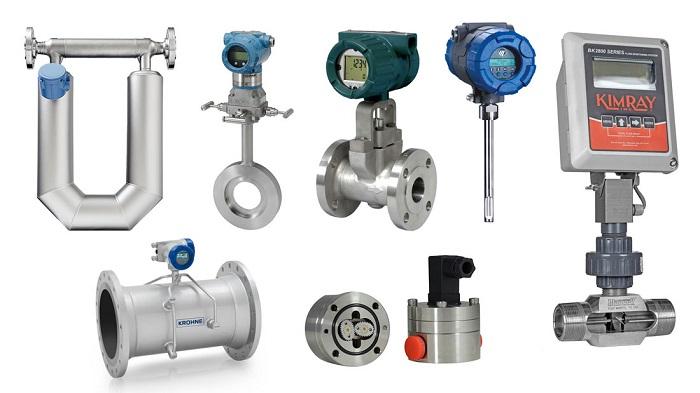What Industries Benefit Most from Using Thermal Flow Meters?

Thermal Flow Meters are essential tools in modern industrial operations. They measure the mass flow of gases accurately without requiring additional calculations. These meters rely on heat transfer principles to determine flow rates and can handle a wide range of gases and conditions. The combination of reliability, accuracy, and low maintenance makes Thermal Flow Meters highly valuable across many industries. Understanding which industries benefit the most from these meters helps in selecting the right equipment for each application.
How Thermal Flow Meters Work
Basic Principle
Thermal Flow Meters operate on the principle of heat transfer. A heated sensor is placed in the gas flow. The rate at which the heat dissipates depends on the velocity and mass of the gas passing over the sensor. By measuring the temperature difference, the flow rate can be determined accurately. Because the measurement is based on mass rather than volume, variations in pressure and temperature have less impact on accuracy.
Advantages Over Other Flow Meters
Thermal Flow Meters have no moving parts, reducing wear and maintenance requirements. They provide direct mass flow measurement, which is critical in processes where accurate gas dosing or monitoring is necessary. They are also suitable for clean and mildly contaminated gases, which broadens their applications.
Power and Energy Industries
Natural Gas Distribution
The natural gas industry relies heavily on precise flow measurement. Thermal Flow Meters are ideal for monitoring distribution pipelines, detecting leaks, and verifying consumption. Accurate mass flow measurement ensures proper billing and regulatory compliance. These meters also allow operators to optimize gas usage and reduce wastage, which is critical in energy management.
Combustion Control
Power plants and industrial boilers benefit from Thermal Flow Meters in combustion control. These meters monitor fuel gas flow to burners, ensuring efficient combustion. Accurate measurement improves energy efficiency, reduces emissions, and maintains safe operation. Plants can use data from Thermal Flow Meters to adjust fuel-to-air ratios in real time.
Chemical and Petrochemical Industries
Process Monitoring
Chemical plants handle a variety of gases in complex processes. Thermal Flow Meters are used to measure feed gases, reactants, and by-products. Accurate mass flow data ensures proper chemical ratios, reducing waste and improving product quality. These meters are also resistant to minor contamination, making them suitable for chemical applications where purity cannot always be guaranteed.
Safety Applications
In petrochemical facilities, monitoring gas leaks is a top priority. Thermal Flow Meters can detect even small changes in flow, providing early warnings of leaks. This helps protect workers, prevent accidents, and comply with environmental regulations.
Environmental Monitoring
Emissions Tracking
Industries increasingly face strict regulations on emissions. Thermal Flow Meters are used to monitor gases released from stacks and vents. Accurate flow measurement allows companies to quantify emissions, report compliance, and adjust processes to reduce pollutants. The ability to measure low-flow and variable-flow gases makes these meters suitable for environmental applications.
Air Quality Control
Thermal Flow Meters are also used in indoor air quality and ventilation monitoring. Facilities such as hospitals, laboratories, and cleanrooms require precise control of airflow. Thermal Flow Meters provide reliable measurements that help maintain safety, comfort, and compliance with air quality standards.
Food and Beverage Industry
Gas Injection and Carbonation
In the food and beverage sector, precise gas control is vital. Thermal Flow Meters measure carbon dioxide in beverage carbonation, nitrogen in packaging, and other gases used in processing. Accurate flow measurement ensures product consistency, quality, and safety. It also reduces gas waste, which improves cost efficiency.
Controlled Atmosphere Storage
Thermal Flow Meters help regulate gas flow in controlled atmosphere storage for fruits and vegetables. By accurately measuring oxygen, carbon dioxide, and nitrogen flows, storage conditions can be optimized to extend shelf life and maintain product quality.
Semiconductor and Electronics Manufacturing
Purge Gas Monitoring
Semiconductor fabrication requires highly controlled environments. Thermal Flow Meters measure purge gases used in reactors and deposition processes. Accurate flow measurement ensures the correct chemical reactions and reduces defects in sensitive electronic components.
Cleanroom Applications
Thermal Flow Meters are also used to monitor airflow in cleanrooms. Maintaining a stable flow of filtered air is critical to prevent contamination. These meters provide reliable data for HVAC systems, ensuring the environment meets strict manufacturing standards.
Pharmaceutical Industry
Controlled Gas Delivery
Pharmaceutical processes often involve sterile environments and precise gas mixtures. Thermal Flow Meters accurately monitor gases used in fermentation, drying, and packaging processes. Maintaining the correct flow rates ensures product consistency, quality, and safety.
Regulatory Compliance
Pharmaceutical manufacturers must comply with strict regulations regarding gas usage and emissions. Thermal Flow Meters provide the accurate data required for reporting and audits. This reduces the risk of non-compliance and helps maintain high production standards.
Emerging Energy and Technology Sectors
Hydrogen Production
As hydrogen becomes a more important energy source, Thermal Flow Meters play a role in measuring hydrogen gas flow in production and distribution systems. Accurate mass flow measurement is essential for efficiency, safety, and regulatory compliance in these emerging applications.
Bio-Gas and Renewable Gases
Thermal Flow Meters are increasingly used in bio-gas plants and renewable gas projects. They measure methane and other gases produced from organic waste. Accurate measurement helps optimize production, improve energy yields, and monitor emissions.
Conclusion
Thermal Flow Meters serve a wide range of industries, from traditional energy and chemical sectors to high-tech and emerging applications. Their ability to provide accurate mass flow measurements without moving parts makes them versatile and reliable. Industries such as natural gas, power generation, chemical processing, environmental monitoring, food and beverage, semiconductor fabrication, pharmaceuticals, and renewable energy benefit most from these meters. By selecting the right Thermal Flow Meter for their needs, companies can improve efficiency, ensure safety, maintain regulatory compliance, and optimize costs.
- Art
- Causes
- Crafts
- Dance
- Drinks
- Film
- Fitness
- Food
- Παιχνίδια
- Gardening
- Health
- Κεντρική Σελίδα
- Literature
- Music
- Networking
- άλλο
- Party
- Religion
- Shopping
- Sports
- Theater
- Wellness



